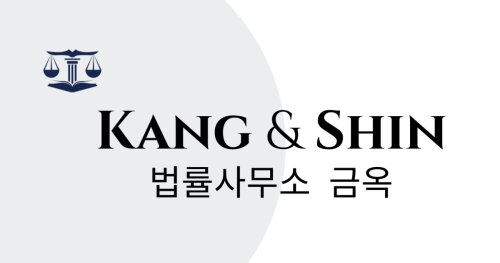Best Employment Benefits & Executive Compensation Lawyers in South Korea
Share your needs with us, get contacted by law firms.
Free. Takes 2 min.
Or refine your search by selecting a city:
List of the best lawyers in South Korea
About Employment Benefits & Executive Compensation Law in South Korea
Employment Benefits & Executive Compensation law in South Korea is a specialized area that governs the compensation, incentives, and benefits provided by employers to their employees, particularly company executives. South Korean law mandates specific minimum employment benefits such as severance pay, annual leave, and various insurances including health, employment, and occupational injury insurance. Additionally, executive compensation can include elements such as bonuses, stock options, and retirement packages, which may involve more complex legal considerations regarding taxation, corporate governance, and compliance with disclosure requirements. Understanding the regulatory framework in South Korea is essential for employers and employees alike to ensure compliance and fair treatment.
Why You May Need a Lawyer
There are several situations where individuals or businesses might need legal assistance in the field of Employment Benefits & Executive Compensation in South Korea:
- Drafting and reviewing employment contracts and executive compensation packages to ensure compliance with local laws and tax regulations.
- Resolving disputes regarding severance pay, unpaid bonuses, or unfulfilled employment benefits obligations.
- Advising on and implementing employee incentive programs such as stock options or profit-sharing plans.
- Ensuring compliance with corporate governance regulations and disclosure requirements for executive compensation.
- Navigating the complexities of cross-border compensation and benefits for multinational corporations.
- Assisting with the legal implications of layoffs, restructuring, or mergers and acquisitions.
Engaging a lawyer who specializes in Employment Benefits & Executive Compensation can provide valuable guidance and representation to protect your interests and ensure legal compliance.
Local Laws Overview
South Korea's legal framework for employment benefits and executive compensation is comprehensive and codified in several key laws:
- Labor Standards Act (LSA): Specifies minimum employment conditions including working hours, leave, wages, and severance pay.
- Employee Retirement Benefit Security Act (ERBSA): Governs retirement benefits systems, including rules on severance payments and pension plans.
- Income Tax Act: Details the taxation of employment income, including fringe benefits and stock options.
- Commercial Act: Outlines corporate governance, including the responsibilities and rights of company executives.
- Act on the Promotion of Worker’s Participation and Cooperation: Encourages workplace democracy, including employee participation in management decisions affecting employment terms.
- Equal Employment Opportunity and Work-Family Balance Assistance Act: Ensures non-discriminatory practices and promotes work-life balance through family leave policies.
These laws reflect South Korea's commitment to protecting workers' rights while also accounting for the needs of businesses to effectively manage their human resources.
Frequently Asked Questions
What is the minimum legal requirement for severance pay in South Korea?
Under the Labor Standards Act, employees who have worked for more than one year are entitled to severance pay equivalent to at least 30 days' average wages for each year of continuous employment.
Are employers in South Korea required to provide pension plans?
Yes, under the Employee Retirement Benefit Security Act, employers must set up either a corporate pension plan or a severance payment system for employees.
How are stock options taxed in South Korea?
Stock options are typically considered taxable income and subject to withholding tax at the time of exercise, with specific rules depending on the nature of the grant and holding period.
Is it mandatory to provide annual leave?
Yes, the Labor Standards Act mandates a minimum of 15 days of paid annual leave for employees who have worked at least 80% of the year, with additional leave accruing with longer service.
Can foreign executives work in South Korea without restrictions?
Foreign executives need to obtain the appropriate work visa and comply with South Korea's immigration and labor laws, which may include sponsorship and certain employment conditions.
What is the role of the board of directors in executive compensation?
The board of directors often plays a crucial role in approving and overseeing executive compensation policies to align with corporate governance standards and shareholder interests.
How is employment termination regulated legally?
Employment can only be terminated with just cause, and employers must provide advance notice or payment in lieu of notice, along with any owed severance pay.
Are there restrictions on bonus payments?
Bonuses must comply with agreed-upon employment terms and conditions of employment contracts and may be subject to minimum payment regulations in collective agreements.
How can an employee dispute unpaid benefits?
Employees may file a complaint with the local Labor Office, and potentially take legal action through labor mediation or court proceedings if disputes are unresolved.
What are the worker’s rights during mergers and acquisitions?
Workers have rights to information and consultation about the impact on their employment terms, and they may be entitled to severance or other benefits depending on the circumstances.
Additional Resources
Here are some resources and organizations that can offer assistance or additional information:
- Ministry of Employment and Labor (MOEL): Provides guidance on labor standards and employment policies.
- National Pension Service (NPS): Offers information on the national pension system and corporate pension plans.
- Korean Bar Association: A professional body connecting lawyers with expertise in employment law.
- Korea Chamber of Commerce and Industry (KCCI): Offers resources and support for businesses regarding employment laws.
- Korean Labor and Employment Service (KLES): Provides consultancy services for labor-management relations.
Next Steps
If you need legal assistance regarding Employment Benefits & Executive Compensation in South Korea, consider taking the following steps:
- Identify your specific legal needs related to employment benefits or compensation issues.
- Research and contact a qualified lawyer or law firm specializing in employment law within South Korea.
- Prepare documentation related to your case, such as employment contracts, correspondences, and any relevant agreements.
- Schedule a consultation to discuss your situation and gather professional advice on the best course of action.
- Consider seeking mediation or alternative dispute resolution if appropriate, before pursuing formal legal proceedings.
Proper legal guidance can help you navigate the complexities of Employment Benefits & Executive Compensation and protect your rights or those of your organization.
Lawzana helps you find the best lawyers and law firms in South Korea through a curated and pre-screened list of qualified legal professionals. Our platform offers rankings and detailed profiles of attorneys and law firms, allowing you to compare based on practice areas, including Employment Benefits & Executive Compensation, experience, and client feedback.
Each profile includes a description of the firm's areas of practice, client reviews, team members and partners, year of establishment, spoken languages, office locations, contact information, social media presence, and any published articles or resources. Most firms on our platform speak English and are experienced in both local and international legal matters.
Get a quote from top-rated law firms in South Korea — quickly, securely, and without unnecessary hassle.
Disclaimer:
The information provided on this page is for general informational purposes only and does not constitute legal advice. While we strive to ensure the accuracy and relevance of the content, legal information may change over time, and interpretations of the law can vary. You should always consult with a qualified legal professional for advice specific to your situation.
We disclaim all liability for actions taken or not taken based on the content of this page. If you believe any information is incorrect or outdated, please contact us, and we will review and update it where appropriate.
Browse employment benefits & executive compensation law firms by city in South Korea
Refine your search by selecting a city.















